
Pickleball saved my life, in more ways than one!
The day Kim Moneyhun ended up on life support was an otherwise typical day. Her pickleball team league was beginning and Kim and her teammates had arranged to scrimmage at the local rec center after lunch. The group was familiar with one another as players, a few were better friends, but all were about to save Kim’s life.
Kim had finished some stretching and was positioned to take her first warm-up serve when Sylvia Whitehouse, a well-respected instructor at Pictona, was walking by. Sylvia heard the serve of the ball and heard Kim say, “Whoa” or “uh-oh” and turned as Kim fell to the ground. According to witnesses who rushed to her side, Kim’s lips and cheeks turned blue within seconds. Kim was in cardiac arrest. She did not have a pulse and Sylvia immediately began to administer chest compressions. EMT’s were notified and until they arrived 6 minutes later, Kim’s friend Cami Morrison kept administering CPR. Once on site, the EMT’s placed a LUCAS (an automated CPR device) on Kim while she was transferred to the hospital. As she was arriving at the hospital Kim’s organs started to fail and doctors worked to lower her body temperature as a preventative measure. Kim was placed on life support and in a medically induced coma.
As Kim was being transported to the hospital, her pickleball teammates were unsuccessful in trying to reach her husband, Jim. Jim’s recent knee surgery left him immobile and he was reliant on Kim for his care, so they drove to the Moneyhun home and picked him up.
That first night was touch and go and they were told that Kim had a “slim chance of making it through the first night.” She did, and on the 3rd day they were warned that when Kim came off of life support, she may have signs of brain damage. Against the odds, on the 5th day Kim was removed from life support and spoke for the first time. Over the next few days Kim gained strength and learned about everything that her pickleball community had been taking care of on her behalf. Jim’s knee was not healing properly and he was facing a possible second surgery. Her pickleball angels stepped in and drove Jim back and forth from the hospital to appointments and took turns sitting by her side when he could not be there. Kim woke up one day to Sylvia singing to keep her company! Most fortunately, one the ladies on the pickleball court that day was a medical professional and stepped in to act as Kim’s health advocate.
After 8 days in ICU, Kim was able to walk 2 laps with a walker, another 2 laps without, had a defibrillator and a pacemaker implanted and was moved out of ICU. The next day Jim had a second knee surgery and their pickleball community stepped up again. Miraculously, 10 days after falling on the court and being without a pulse for 10 minutes, Kim walked out of the hospital!
For the next few weeks Kim was determined and put in the work to recover, probably due to her training and time in the Navy. To everyone’s surprise and awe, Kim was cleared to play pickleball a little over 6 weeks from the date of her incident. She is back to playing a few times per week and plays weekly at Pictona. When Kim hit her first pickleball at Pictona about 2 years ago she could not have imagined that the sport would save her life and introduce her to so many wonderful, strong and caring women!
See you on the courts, Kim!
Chris Nickell, Pictona’s New Executive Director
Chris Nickell comes to Pictona after a long career in higher education spanning 29 years across the U.S. Chris has served at every level including College President, Chief Academic Officer and Chief Executive Officer of a global natural health education company with students in all 50 states and 40 countries. Chris comes with a wide range of executive level experience including finance, sales and marketing, HR, legal, operations, IT, facilities and has worked closely with many government agencies during his tenure in higher education.
Chris has coached youth sports for 30 years including football, baseball and basketball and of course, pickleball. He has a passion for developing juniors, not just in the skills of the sports he has coached but the many life lessons gained through competition, most importantly, how to handle wins and losses with grace and humility. One of the strategic goals he looks forward to achieving at Pictona is building a robust juniors, high school, and collegiate program. He strongly believes that this area of our sport is behind schedule and he is committed to Pictona being a place that can work collaboratively with other companies and organizations within the sport of pickleball to continue pushing the growth of junior and collegiate pickleball.
Chris was a competitive athlete himself, playing football and baseball through high school. In addition, he grew up playing table tennis in high school, college and beyond while residing in southwestern Germany. Chris started playing pickleball in 2019 while living in Fort Wayne, Indiana. He noticed the same seniors going into the gym hitting a green wiffle ball with a large table tennis paddle. He went home and bought an Onix Z3 on Amazon and became addicted.
Chris relocated back home to Dayton, Ohio in 2020 after losing his stepfather to COVID so he didn't play pickleball for four years until the beginning of this year, when he dove head first, all in to the sport and decided it was time to walk away from higher education and pivot his career into the sport he had missing since 2020. This year, Chris has played in many tournaments winning his share of hardware including bronze in the Champions Division of Men's 3.5-3.99 50+ in Dallas earlier this month. He served as the Pickleball Director at Woodhaven Swim and Tennis Club in Centerville, Ohio, coached for Pickleball Kingdom and has been working with PickleRage - Centerville with their programming while coaching the University of Dayton Pickleball Club. He is a triple certified pickleball coach with PPR, PCI and DUPR Coach certification. He greatly looks forward to enhancing Pictona's pickleball programming with many DUPR courts, leagues and events and hopes to partner with DUPR Collegiate on several initiatives.
Chris and his wife Amy have four children, Carissa (25), Caitlyn (23), Arabella (15) and Cash (12). Chris will be relocating ahead of his family who will finish out the school year back in Centerville, Ohio.
CLICK HERE PDF - November 2025 Instructional Calendar
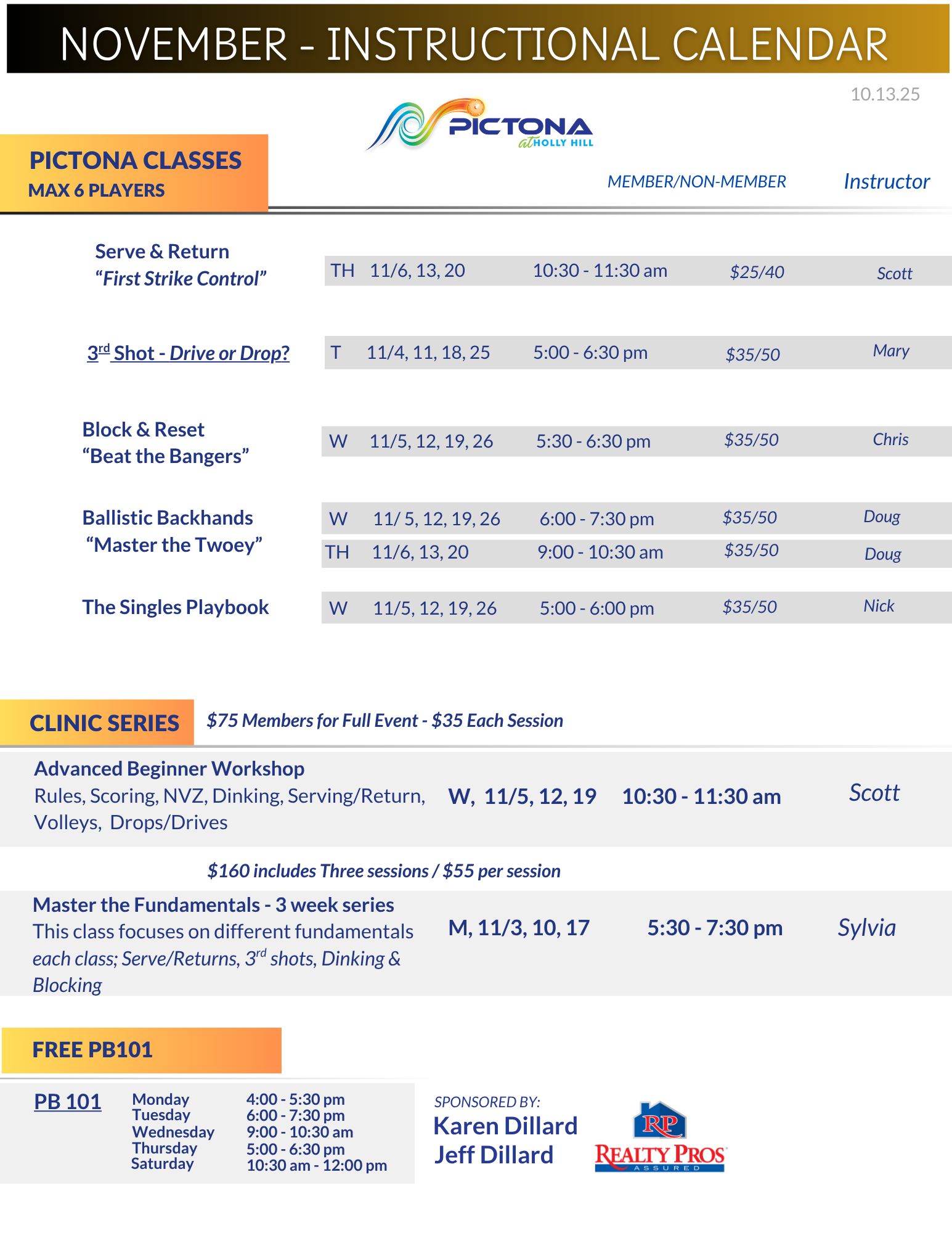
CLICK HERE PDF - September 2025 Instructional Calendar
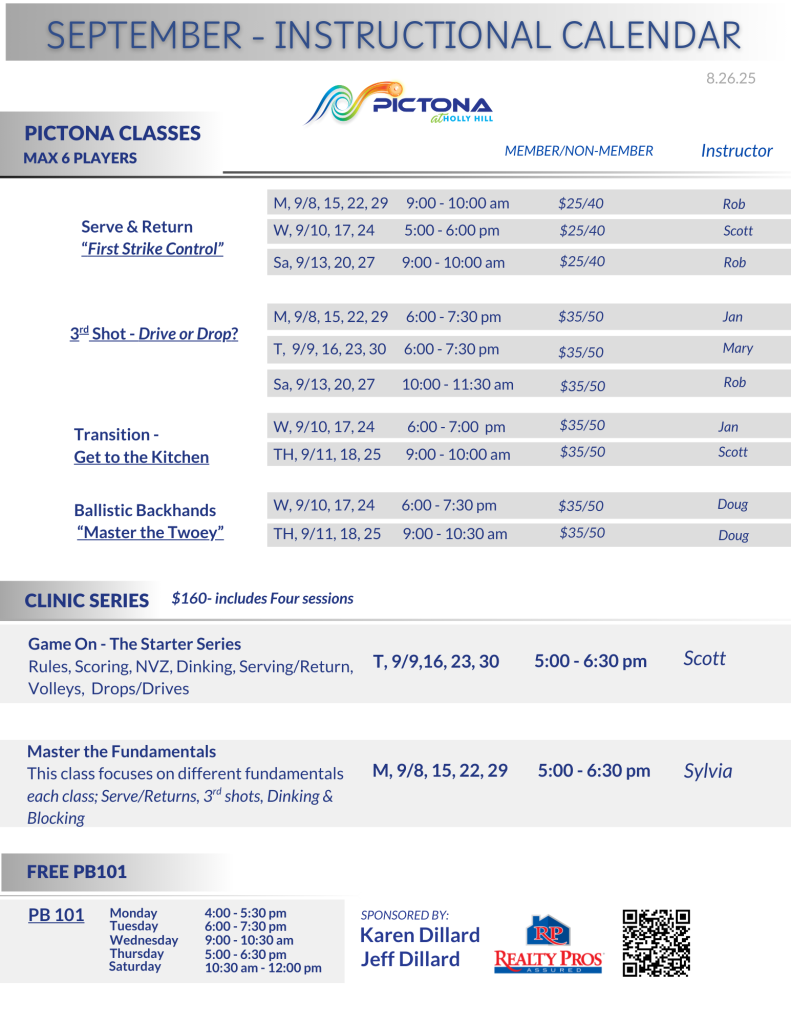

Help Pictona be Named the Pickleball Facility of the Year!
We’re delighted to be in the running for Pickleball Venue of the Year…and we need YOUR vote to make it happen! Every vote counts, and yours could make the difference.
Follow these steps to vote:
https://www.openplaypost.com/pvoty

Remembering Jordan Ferrell —A message from his father, Jerad Ferrell
Jordan wasn't just a player or a coach at Pictona—he became the heart and soul of this community.
From early 2024, we embarked on a mission together: to channel Jordan's boundless energy and love for pickleball into a professional calling. That journey led to an extraordinary achievement. Jordan became an RPPk + DUPR Certified Pickleball Instructor, earning advanced certification through Tyson McGuffin's elite program. At just 20 years old, he stood among the nation's top-tier instructors.
At Pictona, Jordan's presence was magnetic. He infused every drill and match with unmatched enthusiasm. He coached with encouragement and played with fierce intensity, yet always ensured every player felt welcomed and valued. He connected with members of all backgrounds, building genuine friendships and spreading joy wherever he went. His laughter and dedication breathed life into our courts—not just at Pictona, but throughout the pickleball world.
To our family, Jordan was a bright, caring son and devoted brother—our protector and our light. To the friends and players at Pictona, he was a leader, teammate, and friend whose spirit elevated everyone around him.
Thank you, Pictona, for embracing Jordan so completely. Your warmth and support have meant everything to us during this difficult time. We carry Jordan's light forward through our actions—on and off the court—hoping others will feel the same kindness and passion he gave so freely.


Pickleball is quickly becoming one of the most talked-about sports in the United States—
and it’s easy to see why. Whether you’re a total beginner or just curious about the buzz,
you’ve probably asked: What is Pickleball and why is everyone playing it?
In this guide, you’ll learn the basics of the game, its history, rules, and who’s playing it.
You’ll also find tips on how to get started and where to look for courts and lessons in your area.
Pickleball was born in 1965 on Bainbridge Island, Washington. It started as a backyard
invention by three dads—Joel Pritchard, Bill Bell, and Barney McCallum—who were trying
to entertain their children. Using handmade paddles, a plastic ball, and a lowered badminton net,
they created something entirely new.
As for the name? One popular story claims it was named after the Pritchard family’s
dog, Pickles, who liked to chase the ball around. Another version says the name comes
from “pickle boats,” a rowing term for crews made up of leftover rowers.
Either way, the name stuck—and so did the game.
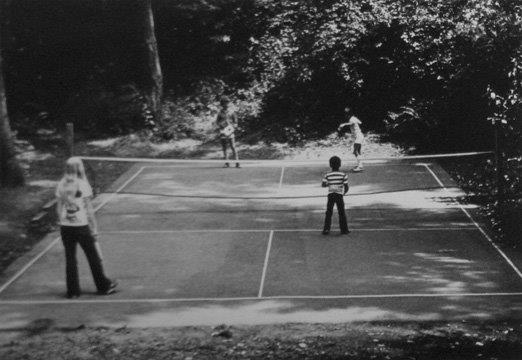
Pickleball is often described as a mix between tennis, ping-pong, and badminton.
It’s played on a court about one-third the size of a tennis court, with a net that's
slightly lower. The game uses solid paddles and a plastic ball with holes.
Here’s how the game works:
Games are usually played to 11 points, but you must win by 2.
Only the serving team can score points.
The serve is underhand and must go diagonally across the court.
Players must let the ball bounce once on each side before volleying.
There’s a non-volley zone near the net called “the kitchen,” where you can’t hit the ball in the air.
The rules are easy to pick up, making it accessible to players of all ages and skill levels.
A pickleball court is 20 feet wide and 44 feet long—the same size for singles
and doubles play. The net is 36 inches high at the sidelines and 34 inches
at the center. The kitchen area (7 feet from the net on each side) is a no-volley
zone, which adds a unique twist to the game.
Because of its size, many communities can fit several pickleball courts in the
space of one tennis court. This makes it more affordable and accessible.
With 49 courts (including 13 covered ones) and plenty of shaded seating, at Pictona, you'll be immersed
in the sounds of play and the sight of happy picklers! Stop by any time at one of our Welcome
desks for a tour of the facility!
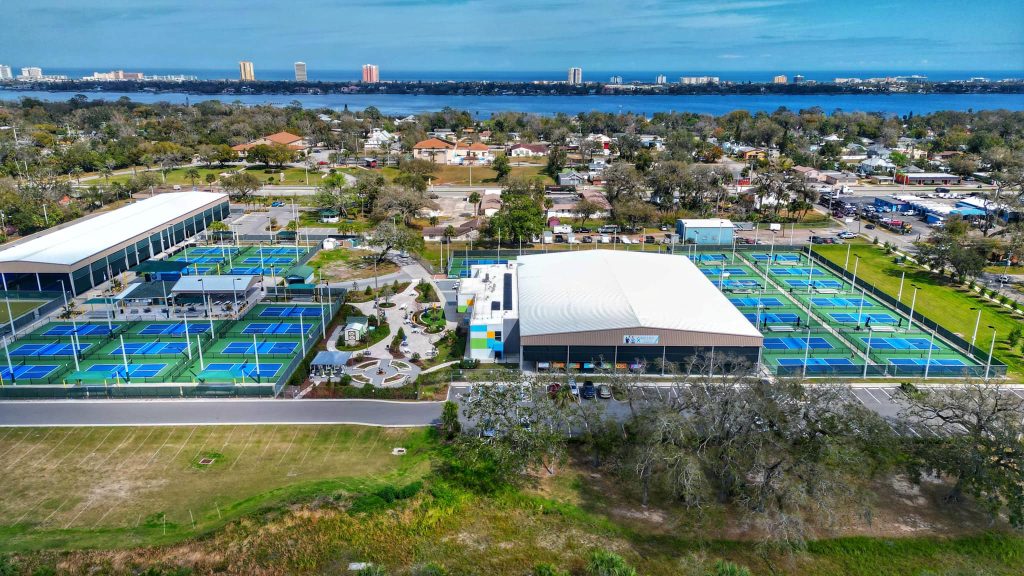
One of the best things about pickleball is its wide appeal. It’s played by:
Seniors who enjoy low-impact activity
Adults looking for social and competitive fun
Teens and young adults who want a quick-paced game
Families and kids enjoying casual games together
Its simplicity and low barrier to entry make it one of the most inclusive sports around.
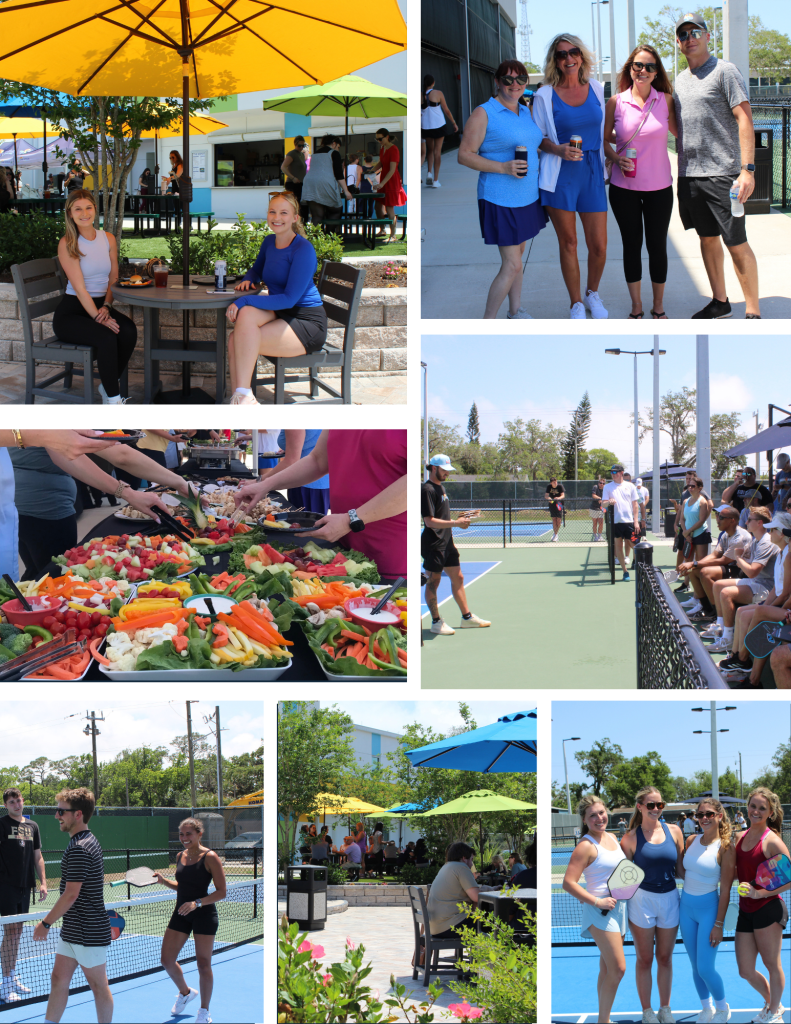
Ready to play? You don’t need much to begin. A basic paddle and a few balls are
enough to start. Pictona at Holly Hill, just north of Daytona Beach, FL , offers PB-101,
FREE Beginner Lessons!
Even better, Pictona has instructors what offer both group and private instruction
tailored for first-time, and advanced players.
Before your first game:
Wear comfortable athletic clothes and court shoes
Bring water and sunscreen if playing outside
Read up on basic rules or watch a few YouTube tutorials
Be ready to meet new people—it’s a social game!
FREE BEGINNER LESSON - SIGN UP HERE!
There are several reasons why pickleball is booming:
Easy to learn: Most players get the hang of it in just one session.
Great exercise: It gets you moving without being too intense.
Social fun: Pickleball is typically played in doubles, encouraging interaction.
Affordable: Equipment and court time are inexpensive or even free in some areas.
As more people look for healthy, inclusive, and enjoyable activities, pickleball continues to stand out.
What is Pickleball? Well, at Pictona at Holly Hill - pickleball is more than a game – it's a lifestyle! It’s a fun, fast-growing sport that’s easy to learn, social to play, and great for people of all ages. Whether you’re looking to try something new or just want to get active without hitting the gym, pickleball might be exactly what you need.
Grab a paddle, gather some friends, and give it a shot. Join us at Pictona in Holly Hill,
just 10 minutes from the stunning white sands of Daytona Beach! You will feel right at home
within our welcoming Pickleball Community.
For those lucky enough to get into the recent US Open Pickleball tournament in Naples, FL last week, it was a ton of fun!
We’re not sure of all the Pictona members who played in the Biggest Pickleball Party in the World with 3500 players, but we do know some! And if you know of some more, please let us know at the email below! jenniferm@pictona.org

Coming home with medals around their necks:
Julie Martens:
🥇Gold in Women’s Singles 3.5 75+
🥇Gold in Mixed Doubles 4.0 75-79
🥈 Silver in Women’s Doubles All Skills 75-79
4th in Mixed Doubles All Skills 75-79
Brittany Levkulich
🥇 Gold in Mixed Doubles 5.0 12-29)
Eric Wells
🥈 Silver in Men’s Doubles 3.5 40-49
Kristen Nagrani
🥉 Bronze in Women’s Doubles 5.0 55-59
We also cheered for:
Instructor Sylvia Whitehouse (playing in 4 events and making it to the pre-medal match in Women’s Doubles All Skills 60-64 and pre-medal in Women’s Doubles 5.0 60-64); 82-year-old
Bob Traul (who came in 4th in Men’s Singles 80-89)
Lucie Denault who made it to Round 6 in the Mixed Doubles All Skills 60-64
Stevie Petropouleas, 13 year old aspiring Pro who stole the show playing against Andre Agassi & Anna Leigh Waters in the televised second round of Pro Mixed Doubles.

??? Who did we miss? Let us know at jenniferm@pictona.org if you were at the Open and won a medal so we can recognize you!